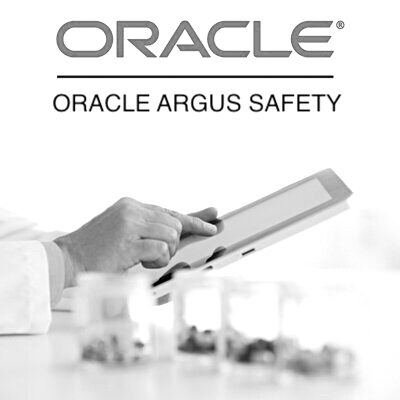Description
The Advanced Diploma in Regulatory Affairs & Medical Writing (ADRA-MW) is an e-learning program designed to provide students a complete understanding of clinical trial regulations, regulatory documents created during the clinical trial process and tasks of performing medical writing for these documents. It equips you to start a career in Regulatory Affairs specialist or as a Medical writer. The course is aligned to the requirements of the industry.
The Diploma in Regulatory Affairs & Medical Writing course comprises 19 modules, 110 chapters, 111 Quizzes and comprehensively covers all aspects of pharmaceutical regulatory affairs and medical writing thus making you eligible for both roles in the industry. At the end of this you can choose to explore a career in regulatory affairs or medical/clinical writing. This enables you to be develop multiple skills and be eligible for a wider set of opportunities.
On completing your enrolment for the program you will instantly get access to our online learning portal.
Curriculum
Course Stats – 29 Modules, 111 Chapters, 110 Quizzes
Module 1 – General Introduction
- Pharmaceutical & CR – Industry Overview
- Introduction to Clinical Research
- Stakeholders and Roles in Clinical Research
- History and Milestones in Clinical Research
- Principles of Good Clinical Practice
- Technologies in Clinical Trial Management
- Overview of Clinical Research Regulatory Bodies
Module 2 – Introduction to the Judicial System in India
- Introduction to Medical Ethics, Medical Malpractice
- Overview of Judicial System in India
- Legitimacy and Paternity
- Privileged Communication and Professional Secrets
Module 3 – Drugs and Cosmetic Act and Rules
- Introduction, Aims and Objectives, Definitions
- Schedules to Drug Rules
- Import, Manufacture and Sale of Drugs
- Labeling and Packaging of Drugs
Module 4 – Schedule Y
- Introduction, Amendments to Schedule Y
- Clinical Trials
- Studies in Special Population, Post Marketing Surveillance and Special Studies
- Appendices
Module 5 – Indian Regulations Governing Clinical Trials
- Regulatory Authorities in India
- Guidelines and important provisions
- Indian Regulatory Approval Process and approval timelines
Module 6 – Regulatory Regime in US
- Responsibilities of US FDA
- FDA Centers
- Code of Federal Regulations
- FDA guidelines for industry
Module 7 – European Medicines Agency (EMEA)
- Introduction, Roles and Responsibilities of EMEA
- Committees of EMEA
- EU Clinical Directives
- EUDRA CT
Module 8 – Regulations in Japan
- Organization and Function of MHLW (JAPAN)
- Pharmaceutical Laws and Regulations in Japan
- Drug Development in Japan
Module 9 – In-Vitro and In-Vivo Pre-clinical studies
- ICH Safety Guidelines related to Carcinogenicity, Genotoxicity, Reprotoxicity
- ICH safety guidelines related to pharmacology and immunotoxicology studies
Module 10 – Efficacy Topics related to Clinical Studies
- Clinical Safety
- Dose Response Studies
- Clinical Evaluation
Module 11 – Common Technical Document (CTD)
- General principles of CTD
- Modules with Diagrammatic representation
- eCTD
Module 12 – IND and NDA Requirements
- IND and NDA applications in U.S
- IND and NDA Applications in India
Module 13 – CMC Information
- CMC for Phase I
- CMC for Phase II and III
Module 14 – Overview of GHTF
- Organization
- Study Groups and Documents
Module 15 – Regulatory Processes for Medical Devices and Veterinary Products
- U.S Scenario
- Indian Scenario
Module 16 – Biosimilars EMEA Guidance and Regulations
- Guidelines and Applications of Biosimilars
- Specific Guidelines
Module 17 – Biopharmaceutical Indian Regulations and Guidelines
- Regulatory Bodies
- Guidelines for Pre-Clinical and Clinical studies
Module 18 – Regulatory Strategic Planning, Interfacing and Corporate Communications
- Regulatory Strategic Planning
- Corporate Communications
Module 19 – Basics of Good Medical Writing
- Introduction & Scope of Medical Writing
- Good Versus Poor Scientific Writing – An Orientation
- Statistics in Medical Writing
Module 20 – Computer Skills
- MS Word, Excel & Other Open Source Software
- Effective Internet Literature Search
Module 21 – Overview of the Regulatory, Marketing and Drug Promotion Process
- Introduction to Regulatory Medical Writing
- Investigation New Drug & Investigational Device Exemption Application
- Protocols, Amendments & Study Reports
- Investigator Brochure & Product Labels
- NDA’s, BLA’s & PMA’s
- Annual Reports
- Product Labeling
- Abstracts & Posters for Scientific Meetings
- Manuscripts for Publication in Scientific Journals
- Legal-Copyright-IP Issues in Medical writing
Module 22 – Common Technical Document
- Introduction and overview of CTD and eCTD
- Putting it all together – CTD Module 1
- Putting it all together – Producing the CTD Modules
- Multi-region submissions & submission standards
- Interfacing with regulatory agencies and answering queries
- Aggregate safety reports
Module 23 – Protocol, Investigator’s Brochure and Case Report Forms
- Writing clinical study protocols
- Introduction to writing Investigator Brochure’s
- Writing case report forms
- Writing regulatory compliant informed consent forms
- ICSR – Patient Narratives
Module 24 – Clinical Study Report
- Parts of a Clinical Study Report
- Templates & Boilerplate Text
- Tips on writing each section of the CSR
Module 25 – Sentence Control
- Fundamentals of Sentence Construction
- Controlling Voice of Sentence for Readability
- Correct Punctuation
- Consistency in Tense Use
- Imprecise Words and Phrases
- Word Order and Pronouns
- Subject – Verb Agreement
Module 26 – Writing Flow and Cohesiveness
- Writing Effective Paragraphs
- Using Effective Data Displays
- Using Style Guides for Consistent Medical Writing
- Overcoming Writers Block
Module 27 – Publication Writing
- Structure of a Scientific Paper
- Electronic Submissions
- Abstract for Scientific Meeting
- Case Report
- Review
- Ethics of Publication
- Guidelines of Publication (e.g. CONSORT, ICMJE, GPP)
- Referencing Guidelines & Taking Software’s Help
Module 28 – Documents in Medico-Marketing
- Leave behind literature (LBL), Visual Aids and Brochure’s
- Continuing Medical Education (CME) for Doctors
- Evidence Based Medicine
- MR Training Manual
- Web Content, Audio-Visual Aids, CDs
Module 29 – Managing the Review Process
- Effective Review Practices
- Managing Incongruous Comments from Reviewers & Reaching Concurrence
- Process Flow and Metrics for Managing Regulatory Submissions
Course Completion
- Final Assessment
- Course Certification
Certification
At the end of the course, students will be awarded a certificate of completion.
Duration
The duration of this program is 6 months.
You will have access to the course on the learning portal, for the duration of the program.





Reviews
There are no reviews yet.